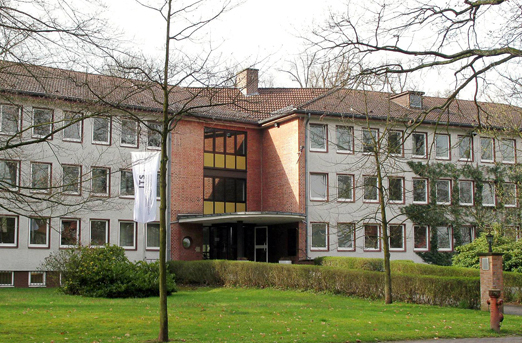Lesbian Women at Arolsen Archives
In the last July issue (no. 175) of Archives and Human Rights, the newsletter of the ICA's Section on Archives and Human Rights (ICA-SAHR), we know about the difficulties of Lesbian women in Austria and Germany during the 1940s and 50s thanks to the documents kept by the Arolsen Archives.
The Arolsen Archives are a unique international organization that results as a consequence of the end of World War II. In 1943, the International section of the British Red Cross was asekd by the Headquarters of the Allied Forces to set up a registration and tracing service for missing people. The organization was formalized under the Supreme Headquarters Allied Expeditionary Forces and nmaed Central Tracing Bureau (CTB) a year later. Once finished the war, the bureau was moved from London to Versailles, and then to Germany. first in Frankfurt am Main and finally settled in Arolsen (changed its name to Bad Arolsen in 1997), northern Hessen. This beautiful Baroque town was not destroyed because of t he war, and was considered the ideal place to locat the CTB.
The main tasks of the institution were tracing missing persons, clarifying people's fate, and providing family members with information, also for compensation and pension matters all over the continent. The CTB became the International Tracing Service (ITS) in 1948 and was put under thr supervision of the International Committee of the Red Cross after the military control of Germany by the Allied forces finished in 1951. The ITS was ruled by the 1955 Bonn Agreement and lately by 2011 Berlin Agreement.
The since 2019 officially renamed as Arolsen Archives or International Center on Nazi Persecution is governed by an international Commission with representatives of nine European countries (Belgium, France, Germany, Greece, Italy, Luxembourg, the Netherlands, Poland and the United Kingdom), Israel and the United States. The Commission draws up the guidelines for the work to be carried out by the institution and monitors these in the interest of the former victims of persecution. In 2007 the archives were made available to the general public.
Almost forgotten: the fate of lesbian women in Austria - Arolsen Archives (arolsen-archives.org)





Comments
Post a Comment